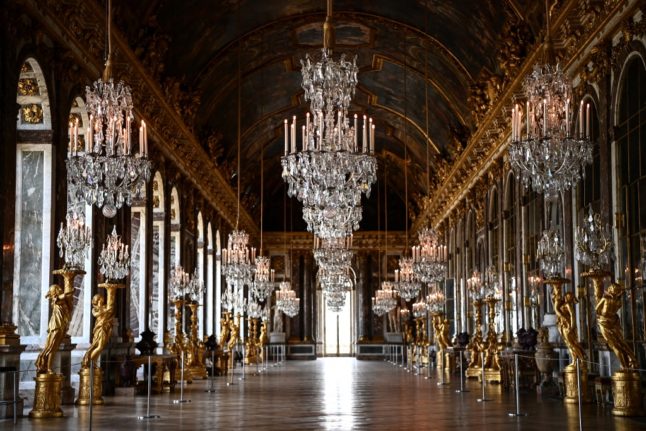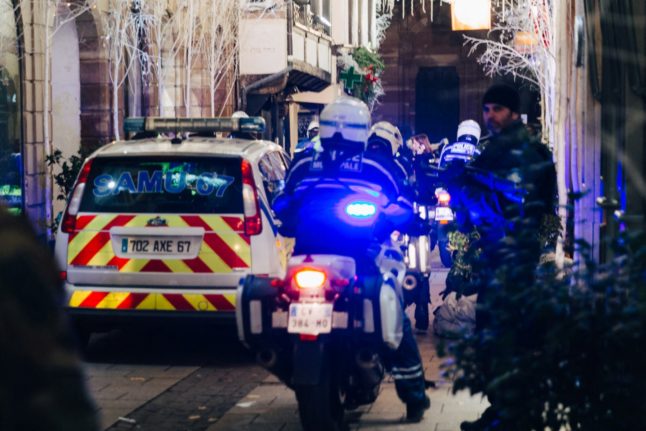Another day, another evacuation at the Palace of Versailles.
“For security reasons, the Palace of Versailles is evacuating visitors and will reopen as soon as the checks have been completed. Thank you for your understanding,” the great former royal residence outside Paris said Saturday in a now all-too familiar message.
Saturday’s evacuation after a bomb threat which turned out to be false was the sixth such one in a week.
READ MORE Should I be worried by the terror alerts in France?
The situation is now starting to agitate not just tourists but also local officials and tourism sector players, who see the risk of a key income source dwindling.
France upped its attack alert level in the wake of a fatal stabbing of a schoolteacher earlier this month by a man who claimed the act in the name of the Islamic State extremist group.
The attack in the northern city of Arras also came amid heightened concern over security after the attack by Palestinian militant group Hamas against Israel which has been followed by retaliatory air strikes on the Gaza Strip.
Against this background, France has over the last days been plagued by false bomb threats not just against the Palace of Versailles but also the Louvre museum and a host of regional airports just as autumn holidays are under way.
‘One thing I wanted to do’
After being banished from the palace due to the security alert, tourists had to content themselves with selfies in the rain with the statue of the sun king Louis XIV in the vast outer courtyard.
There were some 5,000 people inside the palace at the time of Saturday’s evacuation, said a police source. The palace reopened later in the day following checks.
“I’m from California. It’s the one thing I wanted to do in Paris. It’s frustrating,” said Juliette Harris, who was visiting with her husband and two children.
Preferring not to stay in Versailles, which is half an hour’s train ride west of Paris, her family then headed to the Louvre museum in the centre, in the hope that it would not be shut down too.
Most of the false bomb threats, which are posted on French police website moncommissariat.fr are hard to track down.
“I was worried that there would be an alert, but thought it might come in the afternoon,” said Camille Froment from the Tarn region of southern France who is visiting for two weeks with her son.
“I am leaving on Monday and it will be tough” to reschedule with a visit to Versailles, she added.
‘Serious offenders’
Even at this time of year, up to 15,000 people can visit the palace every day, a spokeswoman said, adding that “for now, we have not observed any trend of cancellations by visitors.”
Each cancelled visit can be refunded.
But the mayor of Versailles, Francois de Mazieres (LR), on Friday told Franceinfo radio that visitors “are hesitant to come now”, and that if the alerts continue to multiply, “it could have consequences on attendance”.
In the city, businesses are already seeing sales decline.
“The turnover is starting to fall,” said Ahmed Imran, manager of a souvenir store a few hundred metres (yards) from the palace, where staff have already been reduced in recent days.
Shortly after the alert, restaurant tables were full of disappointed tourists, who had come to take refuge while waiting for the reopening.
“Afterwards, it dries up, and quickly” once the alert has passed. “In the longer term we see fewer and fewer tourists,” said Enzo Aracil, a waiter in a cafe.
The frustration is also beginning to be felt in the police, who must deploy considerable resources at each alert to secure the area.
“It takes time, and during that time colleagues are not doing their daily tasks,” said Tony Vallee, of the Yvelines region police.
At least 11 airports nationwide carried out evacuations on Thursday after receiving threats. Ten were evacuated Friday, among 18 targeted by bomb threats.
Only one airport on Saturday — Tours in the Loire region — was evacuated.
The two main airports in Paris have so far not been affected on any day.
“I want to say it very clearly, the smart guys or the little jokers who play these games are in fact big fools, even serious offenders,” Transport Minister Clement Beaune said Friday.



 Please whitelist us to continue reading.
Please whitelist us to continue reading.
Member comments